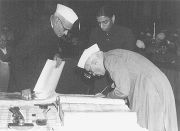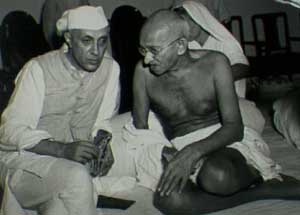AN APPEAL FOR SUPPORT
- We seek your support to meet expenses relating to some new and essential software, formatting of articles and books, maintaining and running the journal through hosting, correrspondences, etc. You can use the PAYPAL link given above. Please click on the PAYPAL logo, and it will take you to the PAYPAL website. Please use the e-mail address thirumalai@mn.rr.com to make your contributions using PAYPAL.
Also please use the AMAZON link to buy your books. Even the smallest contribution will go a long way in supporting this journal. Thank you. Thirumalai, Editor.
BOOKS FOR YOU TO READ AND DOWNLOAD FREE!
- A Socio-Pragmatic Comparative Study of Ostensible Invitations in English and Farsi ...
Mohammad Ali Salmani-Nodoushan, Ph.D. - ADVANCED WRITING - A COURSE TEXTBOOK ...
Parviz Birjandi, Ph.D.
Seyyed Mohammad Alavi, Ph.D.
Mohammad Ali Salmani-Nodoushan, Ph.D. - TEXT FAMILIARITY, READING TASKS, AND ESP TEST PERFORMANCE: A STUDY ON IRANIAN LEP AND NON-LEP UNIVERSITY STUDENTS - A DOCTORAL DISSERTATION ...
Mohammad Ali Salmani-Nodoushan, Ph.D. - A STUDY ON THE LEARNING PROCESS OF ENGLISH
BY HIGHER SECONDARY STUDENTS
WITH SPECIAL REFERENCE TO DHARMAPURI DISTRICT IN TAMILNADU ...
K. Chidambaram, Ph.D. - SPEAKING STRATEGIES TO OVERCOME COMMUNICATION
DIFFICULTIES IN THE TARGET LANGUAGE SITUATION - BANGLADESHIS IN NEW ZEALAND ...
Harunur Rashid Khan - THE PROBLEMS IN LEARNING MODAL AUXILIARY VERBS IN ENGLISH AT HIGH SCHOOL LEVEL ...
Chandra Bose, Ph.D. Candidate - THE ROLE OF VISION IN LANGUAGE LEARNING
- in Children with Moderate to Severe Disabilities ...
Martha Low, Ph.D. - SANSKRIT TO ENGLISH TRANSLATOR ...
S. Aparna, M.Sc. - A LINGUISTIC STUDY OF ENGLISH LANGUAGE CURRICULUM AT THE SECONDARY LEVEL IN BANGLADESH - A COMMUNICATIVE APPROACH TO CURRICULUM DEVELOPMENT by
Kamrul Hasan, Ph.D. - COMMUNICATION VIA EYE AND FACE in Indian Contexts by
M. S. Thirumalai, Ph.D. - COMMUNICATION
VIA GESTURE: A STUDY OF INDIAN CONTEXTS by M. S. Thirumalai, Ph.D. - CIEFL Occasional
Papers in Linguistics,
Vol. 1 - Language, Thought
and Disorder - Some Classic Positions by
M. S. Thirumalai, Ph.D. - English in India:
Loyalty and Attitudes
by Annika Hohenthal - Language In Science
by M. S. Thirumalai, Ph.D. - Vocabulary Education
by B. Mallikarjun, Ph.D. - A CONTRASTIVE ANALYSIS OF HINDI
AND MALAYALAM
by V. Geethakumary, Ph.D. - LANGUAGE OF ADVERTISEMENTS
IN TAMIL
by Sandhya Nayak, Ph.D. - An Introduction to TESOL:
Methods of Teaching English
to Speakers of Other Languages
by M. S. Thirumalai, Ph.D. - Transformation of
Natural Language
into Indexing Language:
Kannada - A Case Study
by B. A. Sharada, Ph.D. - How to Learn
Another Language?
by M.S.Thirumalai, Ph.D. - Verbal Communication
with CP Children
by Shyamala Chengappa, Ph.D.
and M.S.Thirumalai, Ph.D. - Bringing Order
to Linguistic Diversity
- Language Planning in
the British Raj by
Ranjit Singh Rangila,
M. S. Thirumalai,
and B. Mallikarjun
REFERENCE MATERIAL
- UNIVERSAL DECLARATION OF LINGUISTIC RIGHTS
- Lord Macaulay and
His Minute on
Indian Education - In Defense of
Indian Vernaculars
Against
Lord Macaulay's Minute
By A Contemporary of
Lord Macaulay - Languages of India,
Census of India 1991 - The Constitution of India:
Provisions Relating to
Languages - The Official
Languages Act, 1963
(As Amended 1967) - Mother Tongues of India,
According to
1961 Census of India
BACK ISSUES
- FROM MARCH 2001
- FROM JANUARY 2002
- INDEX OF ARTICLES
FROM MARCH, 2001
- JANUARY 2006 - INDEX OF AUTHORS
AND THEIR ARTICLES
FROM MARCH, 2001
- JANUARY 2006
- E-mail your articles and book-length reports (preferably in Microsoft Word) to thirumalai@mn.rr.com.
- Contributors from South Asia may send their articles to
B. Mallikarjun,
Central Institute of Indian Languages,
Manasagangotri,
Mysore 570006, India or e-mail to mallikarjun@ciil.stpmy.soft.net - Your articles and booklength reports should be written following the MLA, LSA, or IJDL Stylesheet.
- The Editorial Board has the right to accept, reject, or suggest modifications to the articles submitted for publication, and to make suitable stylistic adjustments. High quality, academic integrity, ethics and morals are expected from the authors and discussants.
Copyright © 2004
M. S. Thirumalai
THE EVOLUTION OF LANGUAGE POLICY IN
THE CONSTITUENT ASSEMBLY OF INDIA
M. S. Thirumalai, Ph.D.
B. Mallikarjun, Ph.D.

EARLIER ARTICLES ON THE SUBJECT
I (Thirumalai) undertook a project some years ago to prepare a descriptive and narrative history of the evolution of India's language policy since the inception of the Indian National Congress in 1885. This is an ongoing project, but I thought that some of the preliminary writing that I have done may be shared with the researchers interested in this important aspect of India's Freedom Struggle. Earlier articles published in LANGUAGE IN INDIA can be accessed using the links given below.
- LANGUAGE POLICY IN THE FORMATIVE YEARS OF INDIAN NATIONAL CONGRESS 1885-1905
- LANGUAGE DYNAMICS OF A POLITICAL SPLIT : SURAT CONGRESS, TILAK VS GOKHALE
- EARLY GANDHI AND THE LANGUAGE POLICY OF THE INDIAN NATIONAL CONGRESS
- THE ROOTS OF LINGUISTIC REORGANIZATION OF INDIAN PROVINCES - DR. ANNIE BESANT AND HER HOME RULE MOVEMENT
- LANGUAGE POLICY IN THE MOTILAL NEHRU COMMITTEE REPORT, 1928 - SEEDS OF THE INDIAN CONSTITUTION
- LANGUAGE POLICY OF THE INDIAN NATIONAL CONGRESS DURING THE PRE-PARTITION PERIOD 1939-1946
- LANGUAGE POLICY OF THE INDIAN NATIONAL CONGRESS 1935-1939 - SOWING THE SEEDS OF A POLICY FOR FREE INDIA - And the Anti-Hindi Agitation in the South
THE CONGRESS PARTY IN THE CONSTITUENT ASSEMBLY
Elections to the Constituent Assembly were held in July 1946. These were not based on direct adult franchise. Members were elected indirectly on a limited and communal franchise. The Provincial Legislative Assemblies were treated as the electorate following the then existing pattern.
The Indian National Congress won all but 7 of the 210 General seats, and All India Muslim League all but five of the 78 Muslim seats.
The Muslim League refused to participate in the proceedings of the Constituent Assembly and, thus, when the Constituent Assembly was finally convened on December 9, 1946, the Assembly had only the representatives of the Indian National Congress and a small number of other delegates representing non-Congress ideologies.
REPRESENTATION OF INTELLECTUALS AND PROFESSIONALS, AND OTHER POLITICAL PARTIES
The Congress had ensured that its representatives in the Constituent Assembly should not only be the practical politicians from its own rank and file but also those intellectuals and professionals, who, although they were not members of the Indian National Congress in the strict sense of the term, were considered to be nationalist in their outlook.
The Indian National Congress also nominated members of some other political parties to the Constituent Assembly with a view to ensuring participation of all shades of opinion in the constitution-making exercise.
The intellectuals and professionals thus elected on the Congress ticket were expected to help the politicians in their pursuit of a Constitution that would fulfill the dreams of the nation as a whole, as reflected in the various policy resolutions of the Indian National Congress.
WE CAN BE PROUD OF OUR LEADERS

Indians can always be proud of their leaders who led them to freedom. It was mainly to the influence and unreserved support of the towering personalities of statesmen like Jawaharlal, C. Rajagopalachari, Sardar Vallabhbhai Patel, Rajendra Prasad, Abul Kalam Azad, G. B. Pant, Kripalani, and others that the intellectuals and civil servants like Alladi Krishnaswamy Aiyar, K. M. Munshi, Gopalaswamy Ayyangar, B.N. Rau, and Dr. B. R. Ambedkar could have a more or less free hand in formulating the provisions in the Constitution.
Behind all these efforts in 1946 was the Indian National Congress, which had a history of sixty-one years of deliberate activity in the political life of India.
FREEDOM TO EXPRESS INDIVIDUAL OPINIONS
Within the Constituent Assembly, the Indian National Congress assumed the responsibility for framing up a Constitution for Free India only in an indirect manner in the sense that partisan politics was kept to the minimum by giving enough freedom to the members of the Constituent Assembly to express their own independently considered opinion on all issues before them.
It was possible because, somehow the Congressmen of yester-years were relatively more disciplined and had been imbued with a greater sense of duty to the nation and were endowed with a perception that always insisted upon a consensus; and hence the unwritten law of accepting finally the less explicitly stated commands of leadership at the top carried the day. Fortunately for the nation, the leadership at the top - Jawaharlal, Abul Kalam Azad, Vallabhbhai Pate, C. Rajagopalachari, et al. - were men of great foresight and forbearance.
PARTY LOYALTY AND SUBMISSION TO LEADERSHIP
In a nutshell, although the Congress Party always kept its presence not explicitly felt within the Constituent Assembly, most of the members of the Assembly were influenced and guided by the policies of the Indian National Congress, and when conflicts arose, These were settled by following the Congress guidelines, meetings of the Constituent Assembly members of the party in closed door sessions.
PLEASE CLICK HERE FOR A PRINTER-FRIENDLY VERSION OF THE ENTIRE PAPER.
M. S. Thirumalai
B. Mallikarjun
Attitudes Toward Hindi | A Survey of Language Preferences in Education in India | News Translation and the Concept of Equivalence - A Discourse Analysis Perspective | Who Is the Indigenous Sri Lankan? | An Overview of Orwell's Animal Farm | Speaking Versus Communicating in Business English | Linguistic Manipulation in Political Advertising | Some Limitations of Corpus-based Language Study | Hegemony, C-Semiologically | The Evolution of Language Policy in the Constituent Assembly of India | HOME PAGE | CONTACT EDITOR
M. S. Thirumalai, Ph.D.
Bethany College of Missions
6820 Auto Club Road, Suite C
Bloomington, MN 55438
U.S.A.
thirumalai@mn.rr.com B. Mallikarjun, Ph.D.
Central Institute of Indian Languages
Mysore 570006
India
mallikarjun@ciil.stpmy.soft.net
- Send your articles
as an attachment
to your e-mail to
thirumalai@mn.rr.com. - Please ensure that your name, academic degrees, institutional affiliation and institutional address, and your e-mail address are all given in the first page of your article. Also include a declaration that your article or work submitted for publication in LANGUAGE IN INDIA is an original work by you and that you have duly acknolwedged the work or works of others you either cited or used in writing your articles, etc. Remember that by maintaining academic integrity we not only do the right thing but also help the growth, development and recognition of Indian scholarship.

